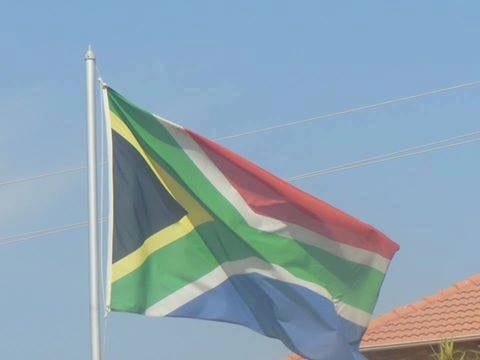Issued by Ismail Joosub on behalf of the FW de Klerk Foundation
1 August 2025, is D-day for South Africa as a looming trade shock becomes reality: the United States is set to impose a punitive 30% tariff on South African exports. This deadline has cast a long shadow over our economy. The South African Reserve Bank warns that these tariffs could put around 100 000 jobs at risk, hitting our agriculture and automotive sectors the hardest. With unemployment already at 32,9% (over 43% by the broad definition) and youth unemployment exceeding 46%, we cannot afford further blows. It’s a stark reminder that nearly half of young South Africans struggle to find work. The question now is not whether this tariff pain can be avoided at the eleventh hour, but how we as a nation can recalibrate and cushion ourselves against such external shocks moving forward.
How did we get here?
Officials in Washington have explicitly criticised South Africa’s domestic policies, including our affirmative action and Black Economic Empowerment (“BEE”) laws, as well as our diplomatic stance on issues like the Russia-Ukraine war and a genocide case against Israel. In their view, these policies create barriers or run counter to US interests. We should be candid: while the American approach is blunt, it has exposed fault lines in our own house. This tariff standoff is, in part, a reaction to our policy choices – and it compels us to reflect on whether those choices are achieving their intended goals for the many or merely protecting a few.
However, assigning blame will not save a single job. South Africa must respond with clear-eyed pragmatism and unity of purpose. We need to turn this crisis into an opportunity to strengthen our economy for the long run.
Here’s how:
First, we must diversify and fortify our trade relationships. South Africa cannot remain over-reliant on a single nation’s goodwill. The United States is our second-largest bilateral trading partner after China, so losing some US market access hurts – but it is far from the end of the road. We should accelerate efforts to expand trade with our BRICS partners and Africa. China’s vast market, for instance, can buy more of our minerals, wine and fruit. India, Brazil and others present growing export destinations if we proactively pursue them. Our government is already working with industry to find alternative markets for our goods and support affected sectors with contingency plans. We should build on this by ramping up trade promotion in Asia, the Middle East and across Africa (leveraging the African Continental Free Trade Area). In short, if one door closes, we must be ready to open many others.
Second, we must invest in skills development and youth empowerment as central pillars of an inclusive, resilient economy.
The tariff crisis underscores an uncomfortable truth: our economy has not been creating nearly enough opportunities, especially for the young. Millions of talented South African youth remain on the margins. We need to harness their potential through education, training and entrepreneurship support. This means overhauling our skills pipeline – from basic education to vocational training – to meet the demands of a modern economy. We can draw on partnerships through BRICS and other allies to boost skills. For example, China has established “Luban Workshops”, vocational training centres in nearly 20 countries, to share technical know-how with local youth. South Africa should welcome such initiatives and even expand them here at home. At last year’s BRICS summit in Johannesburg, a BRICS Skills Challenge showcased how collaboration in fields like robotics, data science and aerospace can help our youth develop critical skills. Technical exchanges, scholarships and joint research programmes with China, India and others will help us cultivate the engineers, artisans and innovators we need. By equipping young South Africans with world-class skills, we not only reduce unemployment, we also make our economy more competitive globally. Our Constitution’s preamble enjoins us to “free the potential of each person” and there is no greater potential waiting to be freed than that of our youth.
Third, we must get our own economic house in order by aligning our policies with both constitutional values and economic reality.
South Africa’s Constitution is our lodestar – it commits us to “improve the quality of life of all citizens” and build a society based on equality and justice. To honour that, our policies must truly uplift the broad population, not just check a box or enrich a connected elite. Take Black Economic Empowerment. Its aim to redress past injustices is correct and constitutional – section 9(2) of the Bill of Rights permits measures to advance those disadvantaged by unfair discrimination. But the Constitution is equally clear that such measures must be reasonably designed to achieve equality in the long run and not impose undue harm or permanent division. BEE, in practice, has too often missed this mark. Even research by Professor William Gumede finds that BEE “has led to increased poverty, unemployment and inequality,” benefiting only a small group of politically connected individuals. That is hardly broad-based empowerment. When our empowerment policies deter investment, block new enterprises, or mostly shuffle existing wealth to a few, they undermine the very equality they purport to promote. We should recalibrate these policies – for example, by gradually shifting toward need-based empowerment (focusing on income and location rather than race) and by rewarding companies for creating jobs and skills more than for token ownership transfers.
The ultimate goal is an economy where young entrepreneurs from Soweto to Saldanha have a fair shot – where empowerment is measured by new jobs, new businesses and rising incomes for the many, not by equity deals for the few. We can achieve this without abandoning redress: by rooting it in economic inclusion and education. This will not only make our society more just, but also remove friction with international partners who have raised objections to our current approach.
Fourth, recommit to the foundational economic freedoms in our Constitution.
Section 22 of the Constitution states plainly: “Every citizen has the right to choose their trade, occupation or profession freely.” This freedom is meaningless if we do not have a climate where businesses can thrive and jobs can be created. We need to foster an environment where entrepreneurs – especially young people – find it easy to start enterprises and where investors (local or foreign) feel confident to put capital into new ventures. That means cutting needless red tape, ensuring reliable infrastructure (like energy, transport or broadband) and enforcing the rule of law so that contracts are honoured and corruption is punished. It also means revisiting onerous regulations that unintentionally stifle job creation. For instance, if well-intended labour laws are discouraging small businesses from hiring first-time jobseekers, we should find smart, constitutionally sound adjustments. We can protect workers’ rights and make it simpler to expand the workforce. A more dynamic economy will better withstand external shocks like tariffs. When South Africans enjoy true economic freedom to innovate and work, we build a buffer against hard times.
Finally, we must embrace a spirit of partnership – “all hands on deck” – to steer through this storm.
Government, business, civil society and the youth must pull together in the national interest. Our government should engage the US diplomatically to defuse tensions, while actively courting alternative trade partners and supporting industries at home. Our business community should not retreat in fear, but rather seize this moment to explore new markets and invest in local capacity. Our youth, who are tech-savvy, creative and energetic, should be invited to the table as entrepreneurs and problem-solvers, not treated as passive victims of high unemployment.
Throughout this process, our Constitution’s vision should be our guide. It calls for “a united and democratic South Africa able to take its rightful place as a sovereign state in the family of nations”. This means we uphold our values at home while remaining constructively engaged in the world. We need not choose between sovereignty and global partnership: we can fiercely defend our interests and reform where needed to meet the highest standards of justice and efficiency.
South Africa has walked a hard road before. We know how to overcome seemingly insurmountable challenges. This current trade crisis is nowhere near as grave as the trials we have already survived. If anything, it is a wake-up call. It is urging us to build the inclusive, competitive economy we have long promised ourselves. We have the blueprint in our Constitution and National Development Plan and we have partners willing to work with us (from BRICS and beyond). Now we must summon the political will and unity to act.









